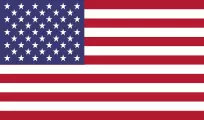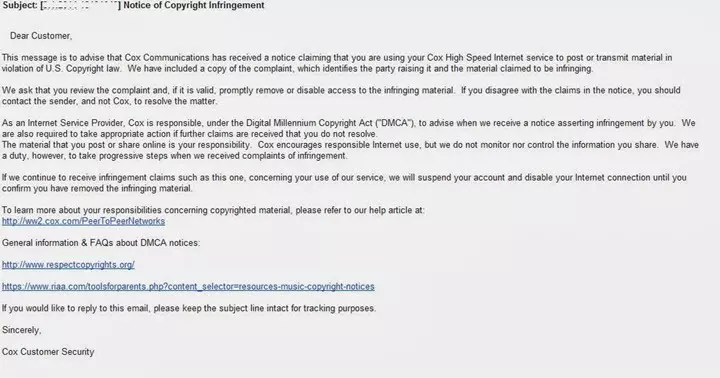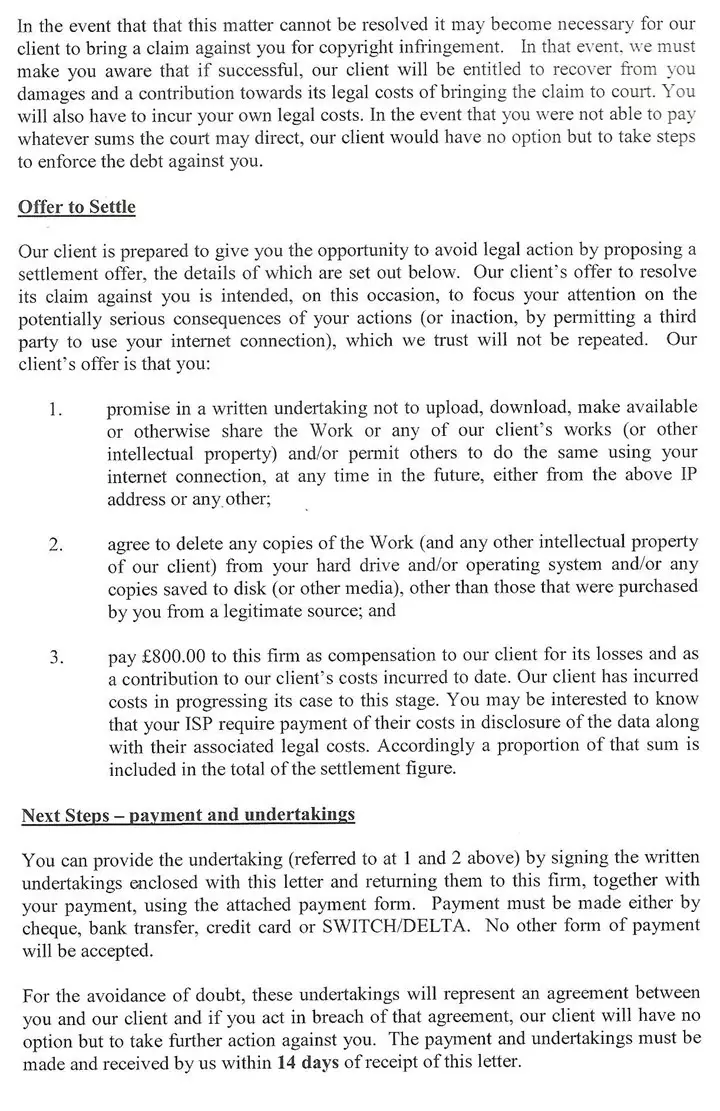BitTorrent is a peer-to-peer (P2P) file-sharing protocol that makes sharing content with other users easy and efficient. Torrenting is legal. There is nothing inherently illegal about the BitTorrent protocol itself. That is to say torrenting legal content is legal, but downloading and sharing any copyrighted material is definitely illegal.
The reason torrenting is popular is that most people want to download copyrighted material without the copyright holders permission. This is copyright infringement. Copyright infringement is regarded as "illegal” almost everywhere, but this can vary wildly from country to country. We take a look at some example of different countries copyright laws below.
So, Torrenting is legal, however when it comes to downloading copyrighted material such as - movies, TV shows, music, etc. this is when it becomes an illegal act.
Warning:
ProPrivacy does not condone or encourage the torrenting of copyrighted material, such material includes music, games, movies or other media. Torrenting copyrighted materials is illegal in most countries and could see you facing criminal charges.
Copyright laws in your country
In most countries, copyright infringement for purely personal use (such as most torrenting) is a civil offense. This means that copyright owners can take offenders to court in order to obtain civil damages against them for loss of income. This can be ruinously expensive for those unfortunate enough to be made an example of in this way but does not result in a criminal conviction.
In some places (notably the UK), copyright infringement is a criminal offense. This means that, in addition to being ordered to pay civil damages, offenders may face criminal prosecution.
Outside of Europe and North America, most copyright laws are in line with international norms (i.e. they exist, and copyright infringement is treated as a civil offense).
But there is often little political will to uphold such laws, resulting in copyright holders concentrating their enforcement efforts on more lucrative markets where (often very expensive) legal action is likely to be successful and to be profitable for the copyright holder.
Copyright laws around the world
We can't realistically cover copyright laws in every country, but some more interesting examples are discussed below.
United States
Copyright infringement: Civil Offence
Punishment: Between $200 to $150,000 for each work infringed, plus legal fees

In the US, torrenting for personal use is not a criminal act, although offenders are subject to a lawsuit. The danger of this should not be underestimated, however, as US citizens are more likely to find themselves sued over copyright offenses than just about anywhere else in the world.
In recent years, the United States has seen an alarming rise in the practice of speculative invoicing (also known as copyright trolling), where copyright holders transfer intellectual property rights to sketchy legal firms. In turn, these companies make a living from threatening offenders with the huge legal costs involved with a court case if they don't pay an on-the-spot settlement for their (alleged) offenses.
We will discuss speculative invoicing further later in this article.
United Kingdom
Copyright infringement: Criminal Offence
Punishment: Up to 10-years in prison and an unlimited fine

Successive British governments have been among the world's most enthusiastic supporters of copyright holder rights. Copyright pirates who share infringing material can now be jailed for up to ten years.
A person who infringes copyright in a work by communicating the work to the public commits an offense if (the person) knows or has reason to believe that (they are) infringing copyright in the work, and knows or has reason to believe that communicating the work to the public will cause loss to the owner of the copyright, or will expose the owner of the copyright to a risk of loss.
The government claims that only large-scale commercial pirates will be targeted, and no-one has (yet) got into trouble for torrenting for personal use. But the fact it has refused to set a threshold on how the law can be applied remains deeply worrying and means that, according to the letter of the law, you can be jailed for ten years for torrenting a single movie.
Under government instructions, UK ISPs are among the most fervent blockers of torrent sites in the world. And it is thanks to these blocks on copyright grounds that UK citizens are subject to some of the most extensive internet censorship performed by any country. Check out our UK VPN page for a list of the services to use there.
The Netherlands
Copyright infringement: Criminal Offence
Punishment: Up to 4-years in prison and a fine of € 45k

For many years the Netherlands was a renowned hotbed of copyright piracy thanks to the fact that downloading copyrighted material was legal in the country.
In theory, there were strict limits to this freedom – only movies and music could be downloaded (not computer software), and only if you already owned it. In practice, copyright laws were not enforced, resulting in something of a pirate free-for-all.
In order to compensate copyright holders for their loss, in 2003 the Dutch government levied a "personal copy fee” tax on all blank storage media such as CD-Rs, DVD-Rs, and USB thumb drives.
This all changed in 2014, however, when the EU Court of justice declared the local legislation unlawful,
If Member States were free to adopt legislation permitting, inter alia, reproductions for private use to be made from an unlawful source, the result of that would clearly be detrimental to the proper functioning of the internal market.
The Court further determined that the "personal copy fee” was also illegal, as it unfairly penalized consumers who had never pirated anything in their lives.
In practice, both ISPs and the government have been unenthusiastic about enforcing the new rules. This is changing, however, thanks to the tireless efforts of anti-piracy outfits such as BRIEN, which recently forced Netherlands ISPs to block The Pirate Bay.
Switzerland
Copyright infringement: Criminal Offence
Punishment: Up to 3-years jail and a fine

Much like in the Netherlands, Switzerland has traditionally had a very relaxed attitude to downloading and copyright piracy.
Indeed, a 2010 Supreme Court ruling making surveillance of peer-to-peer internet users by the authorities illegal effectively scuppered any chance of prosecuting infringers, and ushered in a period of rampant consequence-free copyright piracy.
Although not a member of the EU, the pressure to reform Switzerland's laws increased after the CJEU ruling against the Netherlands in 2014, and was further ratcheted-up in 2016 when the United States added Switzerland to its Special 301 Report Watch List of countries with insufficient copyright protections.
Switzerland responded by tightening up its copyright laws. Downloading music and video content (but not computer programs) and sharing it among a small group of friends and family remains legal in Switzerland. But uploading content to the internet is not. And because of its P2P sharing element, this includes torrenting.
So far, the strongest consequence of being caught torrenting in Switzerland has been receiving a letter from your ISP, but this could change at any time. And as with elsewhere, historical evidence could be used against you.
Russia
Copyright infringement: Criminal Offence
Punishment: Up to 6-years in jail and up to 500,000 RUB fine

Russia is a signatory to the Berne Convention for the Protection of Literary and Artistic Works since 1995, and by law states that downloading and uploading copyrighted content can lead to fines of up to 500,000 RUB (approx. 8,000 USD) or up to six years in jail.
In reality, though, copyright piracy is rife, with little real attempt made to stop it. Some ISPs do implement somewhat piecemeal blocks on torrent sites, and the hugely popular social network VK (once a hotbed for file swapping) has begun blocking access to movies and music on its platform.
It is possible that the apparent lack of official action over copyright infringement is simply due to the secretive nature of the Russian legal system, and that cases exist which have not become public knowledge.
Given the harshness of penalties stipulated by law, it seems prudent to protect your torrent sessions with a VPN.
Sweden
Copyright infringement: Criminal Offence
Punishment: Up to 2-years in prison and a fine
As home to the infamous The Pirate Bay, Sweden in the Noughties achieved notoriety for being pirate heaven.
Things have changed since TPB's 2003 inception, however, with all founding members receiving jail time and Sweden transposing the EU directive on intellectual property rights enforcement (IPRED) into local law in 2009. A legal challenge on human rights grounds did crop up but was ultimately quashed by the European Court of Justice in 2012.
Local implementation of the law allows heavy file sharers to be jailed and compels ISPs to hand over suspects' details upon receiving a court order. Swedish implementation of IPRED does not, however, cut off offenders' internet access and Swedish courts have ruled that the right to privacy of suspected occasional file sharers trumps the interests of copyright holders.
This has limited the scope of the law to serious cases, despite copyright infringement being a criminal offense that can result in fines or imprisonment for up to two years.
After an initial scare (evidenced by a 30 percent drop in Internet traffic), Swedish users started to adopt VPNs in order to carry on P2P downloading as before. And with many Swedish ISPs now refusing to keep logs, enforcement of IPRED is difficult.
Moves are afoot, however, to swing the pendulum back in the favor of right-holders. Responding to a 2018 report, which found that penalties in Sweden "appear to be low” compared to those in other countries, Sweden's Minister for Justice proposed tough new laws designed to tackle large-scale copyright infringement and "serious” trademark infringement, including a six months minimum jail sentence.
These changes were set to come into force on 1 July 2019, but as of January 2020, we are unable to determine the current state of play.
Spain
Copyright infringement: Criminal Offence
Punishment: Up to 6-years in prison

Spain has a reputation for being something of a pirate haven. Indeed, in 2015, even official statistics admitted that 88% of cultural content consumed in Spain each year is pirated. This includes films, TV shows, and music, with a reported market value of up to €23.3 billion.
These high levels of piracy have resulted in at least a partial crackdown by Spanish authorities under pressure to do something about the situation. In 2017, for example, ISPs were ordered by a court to block The Pirate Bay and several other high-profile torrent sites.
Any such efforts have been undermined by a 2006 court ruling that downloading content for personal use is not a criminal offense, as long as there is no intent to profit from it.
Despite this, a number of successful high profile civil cases and speculative invoicing campaigns have been brought against copyright pirates. In one case, 300 pirates each paid €425 in out of court settlements for movie piracy.
Spanish ISPs are known to cooperate with copyright holders, and Spain's 12-month mandatory data retention laws make it easy to identify infringers (unless they use a VPN, of course).
What are the consequences of copyright infringement?
Copyright holders' first response when they detect that your IP address has been involved in downloading their intellectual property (IP) is to send a DMCA notice to your ISP.
This is basically a cease and desist letter. A true DMCA letter is only legally valid in the US, but they are widely respected by ISPs everywhere. Most countries also have similar legally binding instruments, which are commonly (if inaccurately) referred to simply as DMCA notices.
What happens next depends very much on your ISP, who can easily map the IP address and the time it was used to your customer account.
A nasty letter from your ISP
A typical first response (maybe after receiving two or more DMCA notices linked to your IP address) is for your ISP to send you a warning letter. Depending on your ISP, this may be "educational” in tone or quite aggressive.

A few years ago, ISPs in several countries began implementing "x strikes and you're out” systems, where they would disconnect your internet of repeat offenders. This is sometimes required by law, such as France's three-strikes HADOPI law, while America's six strikes Copyright Alert System (CAS) is completely voluntary.
These systems have all died a quiet death, however, with ignored warnings potentially resulting in your ISP handing over your account details to the copyright holder instead.
Speculative invoicing
Once a copyright holder has identified the owner of the IP address that has been caught torrenting, it can push for criminal prosecution (if such laws exist in your country) or pursue civil damages in court.
Even in countries that technically criminalize torrenting, there has (so far) been little appetite for convicting individuals who download purely for personal use, although those who profit from copyright piracy have faced some extremely stiff jail sentences.
This leaves pursuing civil damages in court. But doing so is an expensive and time-consuming process for all involved, with a high chance of failure for the copyright holder.
This has resulted in many copyright holders resorting to the practice of "speculative invoicing” (or selling the IP rights to do this to opportunistic legal firms, known as copyright trolls).
It involves extorting smaller amounts of money from offenders by threatening them with ruinous legal action unless they make an out-of-court settlement.

The UK government's official advice is to never ignore such a letter and to seek legal counsel if you receive one.
Civil damages
A copyright holder may decide to take you to court for damages related to loss of earnings following a refusal to pay up after being speculatively invoiced, or they may opt to skip that part and just take you to court (which is usually done to make an example of someone).
Taking a case to court is very hit-and-miss for all parties involved, hence the popularity of speculative invoicing. But when the copyright owners win, they tend to win big. Even when individuals win, they are often landed with crippling legal costs, and when they lose, are often also ordered to pay all legal costs for the winning party. Ouch.
In 2013, for example, a Florida man was ordered to $30,000 damages for sharing the documentary film "Manny” via BitTorrent, plus $1,657 in attorneys' fees. And in the same year, a torrenter was forced to pay the RIAA $675,000 in damages for sharing 30 songs ($22,500 per song!).
In the event you receive a subpoena for copyright offenses, the EEF offers some advice plus resources, much of which may also be broadly useful outside the United States.
Criminal charges
To the best of our knowledge, no-one anywhere has been subject to a criminal prosecution just for file-sharing content for personal (non-profit) use.
But an increasing number of countries have enacted laws that, at least on paper, allow alarmingly severe criminal punishments to be leveled against ordinary torrenters.
As already discussed, for example, there is no minimum level of copyright infringement in the UK before offenders can be sentenced to 10 years' imprisonment. Such laws can be enforced at any time, and governments are not known for passing laws they never intend to use.

